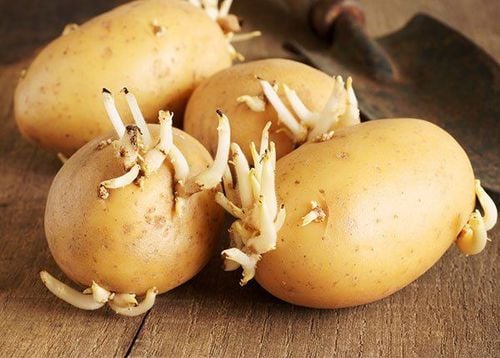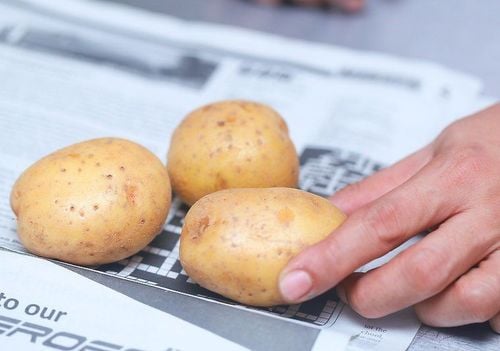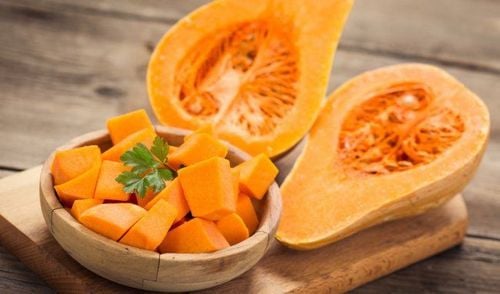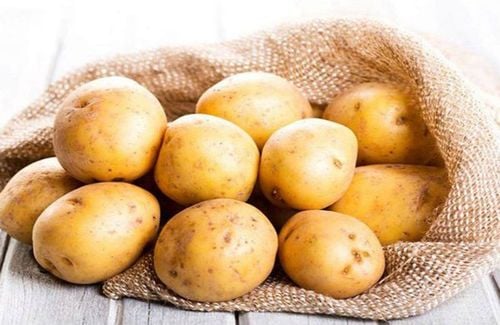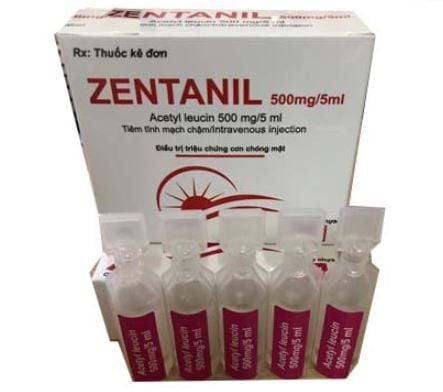This is an automatically translated article.
Potatoes were first grown by indigenous peoples in the Andes Mountains of South America. To date, thousands of varieties of potatoes have been grown worldwide. Although potatoes tend to keep for a long time, do you know exactly how long they should be stored before they become poor quality and need to be thrown away?
1. The shelf life of potatoes
The shelf life of potatoes depends on a number of factors, including how you store them and whether you've cooked them.Uncooked potatoes can be stored for 1 week to several months at room temperature. If the storage temperature is cooler, for example in a food storage room or in the basement, they have a longer shelf life. As for cooked potatoes, they can be stored for up to 4 days in the refrigerator and 1 year in the freezer. If you mash potatoes and store them in the freezer, they will freeze.
2. Signs That Potatoes Are Broken
Even if you have the shelf life of potatoes in mind, you should still inspect the potatoes to see if they have gone bad.
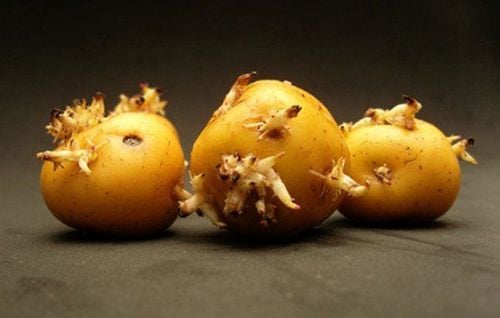
Khoai tây mọc mầm là một trong những dấu hiệu của khoai tây đã hỏng
3. For potatoes that are still fresh
Raw potatoes must be sure when touching you will feel the juiciness from the potato skin. When observed, there should be no large bruises, dark spots or other blemishes. You need to throw away potatoes in the following cases:
If a potato has become soft or mushy, you should throw it away. Normal potatoes can smell earthy, but if they smell musty it's a sign they've gone bad and you need to throw them out. Sometimes a spoiled potato can only be detected if you cut it open. If you cut a potato and notice any unusual signs or smells, it's best to throw the whole potato away. Potatoes that have a bad smell should also be thrown away.
4. What about sprouted potatoes?
Sprouting potatoes are a sign they are about to spoil. Potato sprouts can grow from the potato's eye. Sprouted potatoes may look unappealing, but they're actually safe to eat as long as you remove the sprouts. Or even simply pluck the sprouts by hand.You should not eat sprouts that grow on potatoes because they contain solanine, chaconine and other toxic glycoalkaloids. These compounds can cause serious side effects such as neurological symptoms (headache) and gastrointestinal symptoms (vomiting or diarrhea).
These toxins can also exist in any part of the potato that is greenish in color. Therefore, it is best to cut off the green part of the potato from the stem.
If your potatoes have sprouts, it's best to eat them as soon as possible. As the sprouts grow, they suck the sugar and nutrients from the potato, causing the potato to shrink, shrink, and lose its crispiness.
Cooked potatoes
It is difficult to tell if cooked potatoes have gone bad. In some cases, cooked potatoes have an unpleasant odor or mold visible to the eye. However, in some other cases, this food may contain harmful bacteria without any noticeable signs.
Especially when cooked, potatoes are foods with a high risk of causing food poisoning because cooked potatoes are moist, acidic and contain a lot of protein.
Therefore, it is best to eat them within 4 days of cooking and always reheat them to 74°C to kill any bacteria that may have formed in your potato dish.
5. Health risks of eating spoiled potatoes
Cooked potatoes have a high risk of causing food poisoning. After a few days, they can begin to harbor pathogens and disease-causing bacteria such as salmonella, listeria, botulism, and staphylococcus.You may experience some of the following symptoms if you have food poisoning from potatoes:
Fever Stomach cramps Muscle pain Nausea Vomiting Diarrhea In severe cases these symptoms can lead to dehydration, hospitalization and even death.
Therefore, you should throw away any cooked potatoes that are older than 4 days.
Also, if you observe mold on cooked potatoes, you should remove them immediately. Mold may appear as a few dark spots or brown, black, red, white, or gray-green.

Ăn khoai tây hỏng gây nôn ói, ngộ độc thực phẩm
6. The best way to store potatoes
Careful attention to storage conditions can help potatoes last longer. Warm temperatures and high humidity stimulate germination while light accelerates the formation of glycoalkaloid toxins. Therefore, you should not store potatoes on a shelf or in a place exposed to sunlight. Instead, keep them in a dry, dark place such as a pantry, pantry, cupboard or shelf away from sunlight. You can also store uncooked potatoes in a container to avoid exposure to sunlight. Customers can directly go to Vinmec health system nationwide to visit or contact the hotline here for support.
Articles refer to the source: healthline.com




